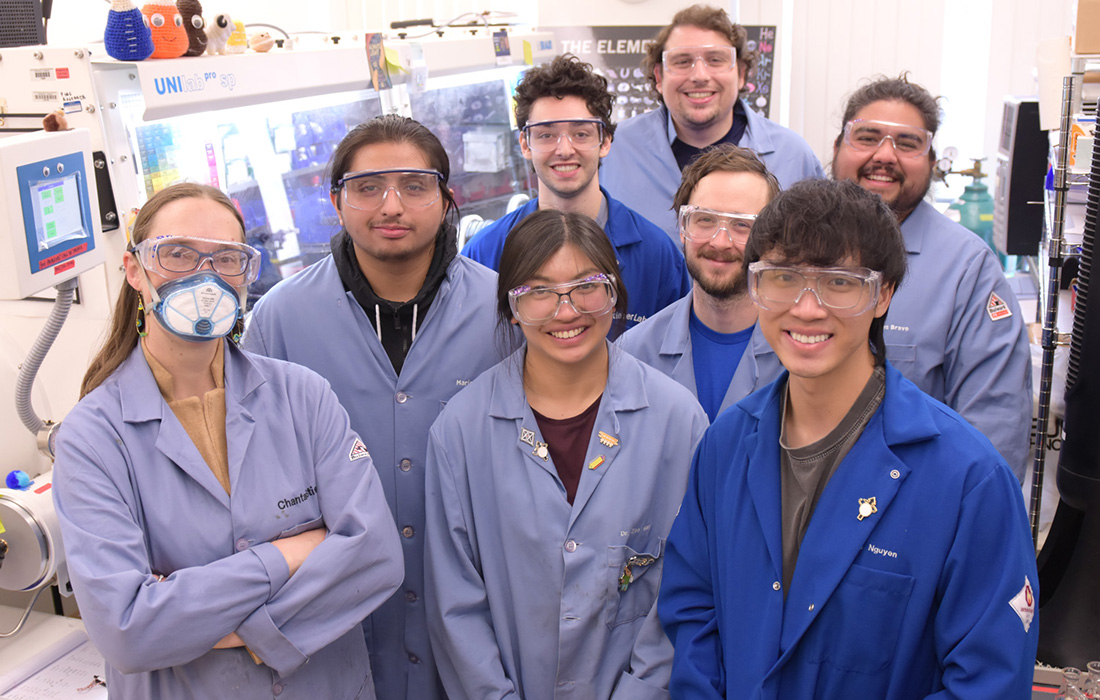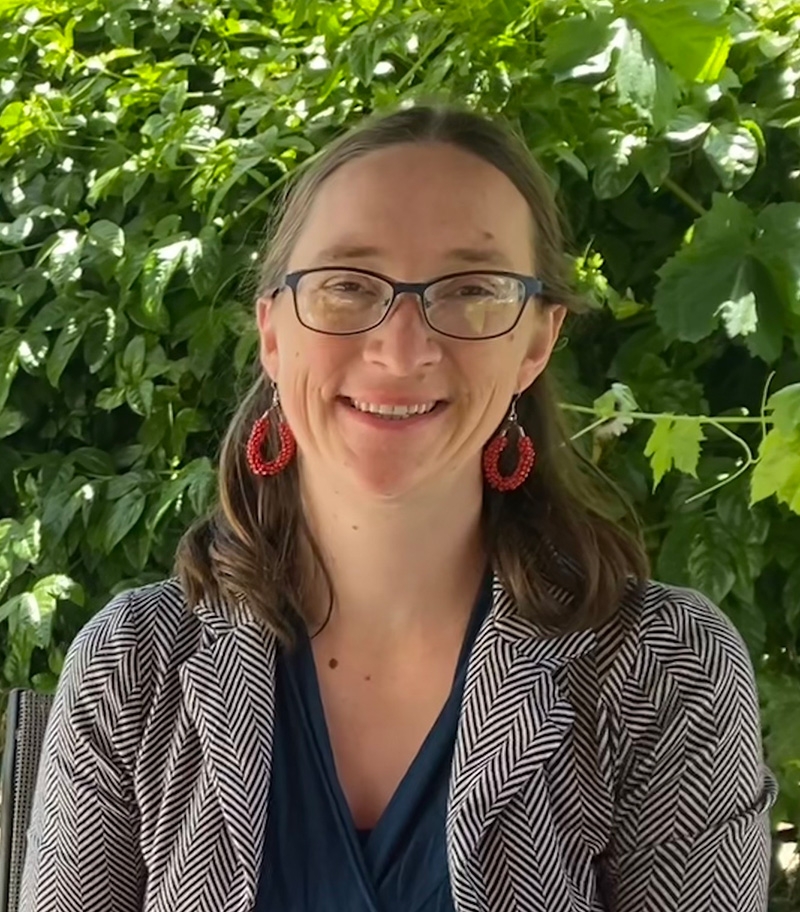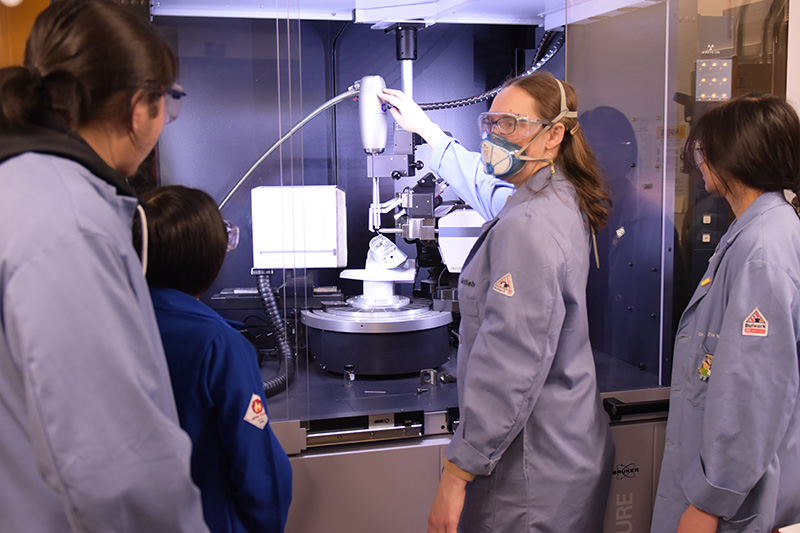Cal Poly Pomona Professor Receives Presidential Award

Cal Poly Pomona Professor of Chemistry Chantal Stieber has received the Presidential Award for Excellence in Science, Mathematics and Engineering Mentoring, which recognizes outstanding efforts of mentors in encouraging the next generation of innovators and developing a science and engineering workforce that reflects the diverse talent of America.
She is one of only 13 individuals to receive the 2023 award which was announced by the National Science Foundation on behalf of the White House Office of Science and Technology in mid-January 2025. The recognition includes $10,000 from the NSF.
 Stieber is an inorganic chemist whose research focuses on organometallic synthesis to remove CO2 from the environment and produce useful chemicals in a sustainable way. Her mentoring is supported through $1.56 million in grants she acquired and $15 million in collaborative funding.
Stieber is an inorganic chemist whose research focuses on organometallic synthesis to remove CO2 from the environment and produce useful chemicals in a sustainable way. Her mentoring is supported through $1.56 million in grants she acquired and $15 million in collaborative funding.
Since joining Cal Poly Pomona in 2015, she’s mentored over 60 undergraduate, master’s, and postdoctoral students. Of her mentees, over 50% are first-generation college students, and over 50% are low income.
She prepares her students to enter industry or pursue Ph.D. programs by teaching them advanced inorganic chemistry methods, such as air-free work and novel instrumentation, skills that aren’t often taught to undergraduates.
“She has high expectations because she knows you’re capable of doing it,” graduate chemistry student Aaron Gaynes said. “She’s one of the most encouraging mentors I’ve had.”
Gaynes completed his Bachelor of Science at UC Santa Cruz but chose CPP for his master’s degree after reviewing Stieber’s research online and meeting her.
For undergraduate Ethan Chavarin, “the lab and the research provided stability. With her mentoring and guidance, I gained options.”
Chavarin won a 2023 SACNAS award for presenting research he conducted in Stieber’s lab. He plans to pursue a Ph.D. in chemistry and has already been accepted by six schools so far.
Former student Caitlyn Isabelle Cruz shared, “I never saw myself as having the potential to be a scientist…. She introduced me to graduate school and from there, I felt secure, for the first time, about what I wanted to do with my life.”
Cruz is pursuing a Ph.D. in atmospheric chemistry at UC Irvine.
 “My mentoring philosophy is that providing undergraduate research opportunities to as many students as possible will increase persistence in STEM,” said Stieber, adding that she likes to work with students early in their careers, so they have more time for research and networking. “Undergraduate research sparked my excitement for chemistry and clarified my goal of a Ph.D., but I was unable to do research until my third year.”
“My mentoring philosophy is that providing undergraduate research opportunities to as many students as possible will increase persistence in STEM,” said Stieber, adding that she likes to work with students early in their careers, so they have more time for research and networking. “Undergraduate research sparked my excitement for chemistry and clarified my goal of a Ph.D., but I was unable to do research until my third year.”
Stieber’s published 11 peer-reviewed papers with graduate and undergraduate mentees. Her students have presented 117 posters and 40 oral presentations at regional and national meetings and garnered over 80 research awards and fellowships.
Her mentoring reaches beyond the CPP campus through her participation co-leading a summer Remote Supergroup of Chemistry Undergraduates from over 20 institutions. The acronym “RSCU” is a reminder of the group’s inception in 2020 when COVID made research, and networking challenging. Stieber and three faculty from other institutions started hour-long weekly zoom meetings that “rescued” students from isolation. The successful meetings have continued.
She credits the Office of Undergraduate Research (OUR) for providing her and her students with training and fellowships. A new initiative OUR is supporting is the Postdoctoral Leadership of Underrepresented Minorities for Teacher-scholar Occupations that has brought five postdocs to train for their teaching careers with Stieber while also providing mentoring support to her students.
Graduate student Gaynes said CPP has facilities and faculty that ensure students wanting to conduct research have ample opportunities.
“We have one of the most unique labs in the department,” Gaynes said.. “We have five experts to give advice and mentorship. It’s very special at an institution that’s not an R1 institution.”

